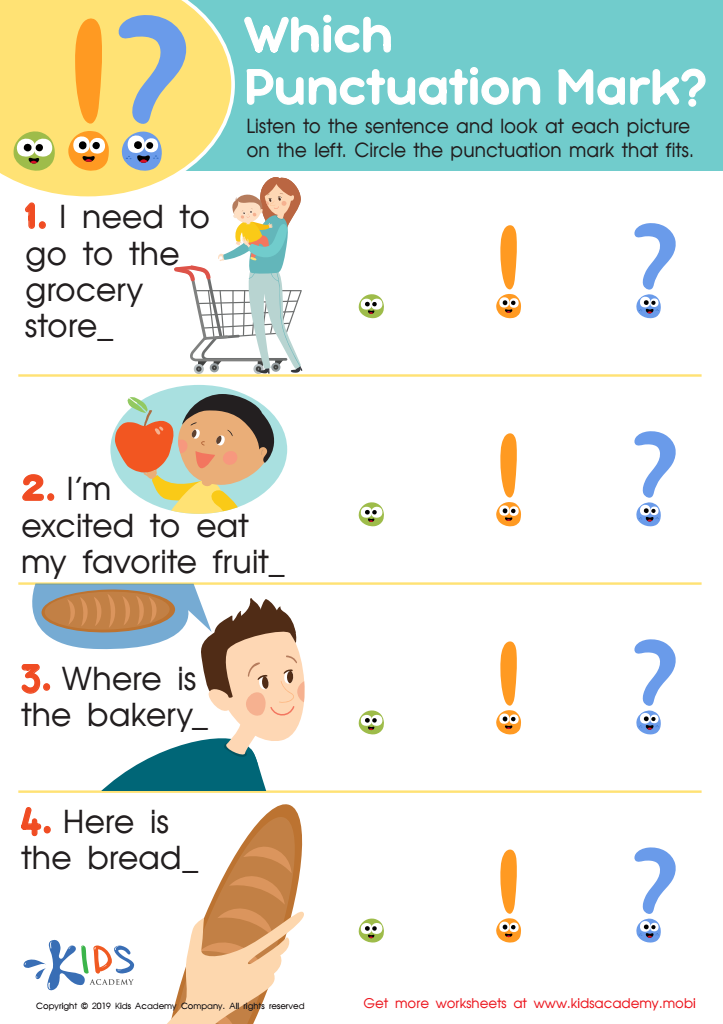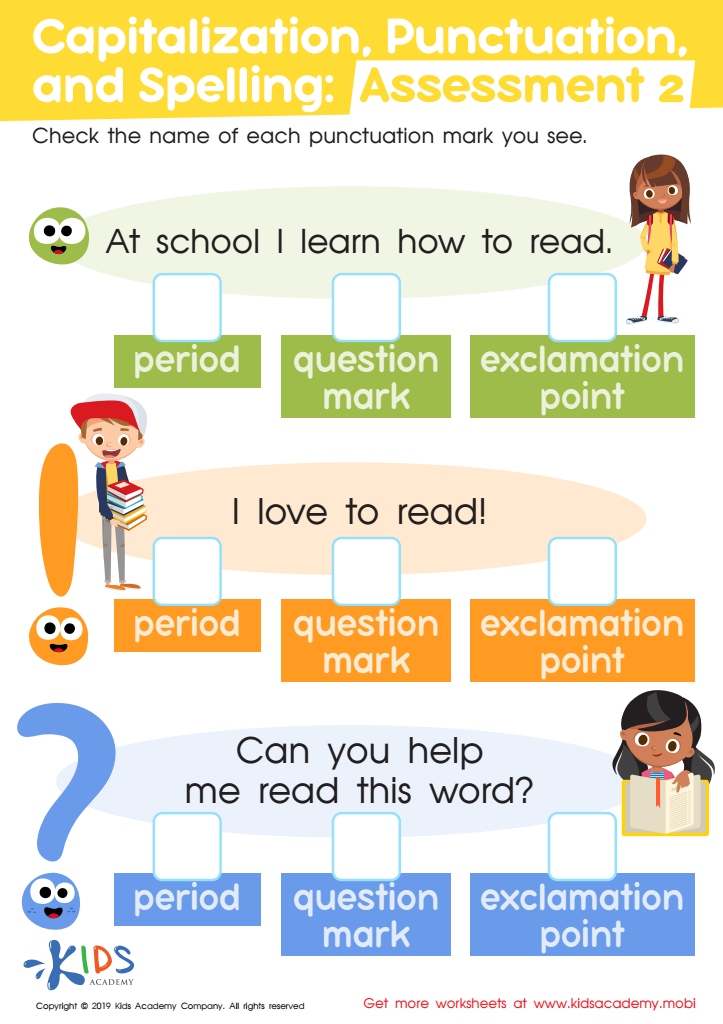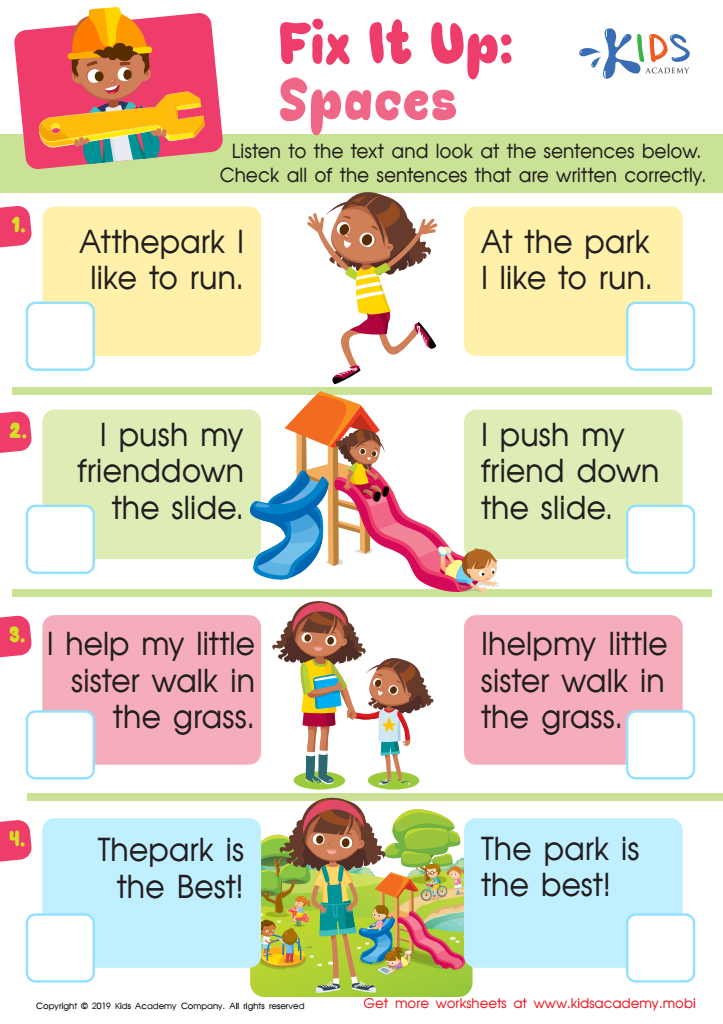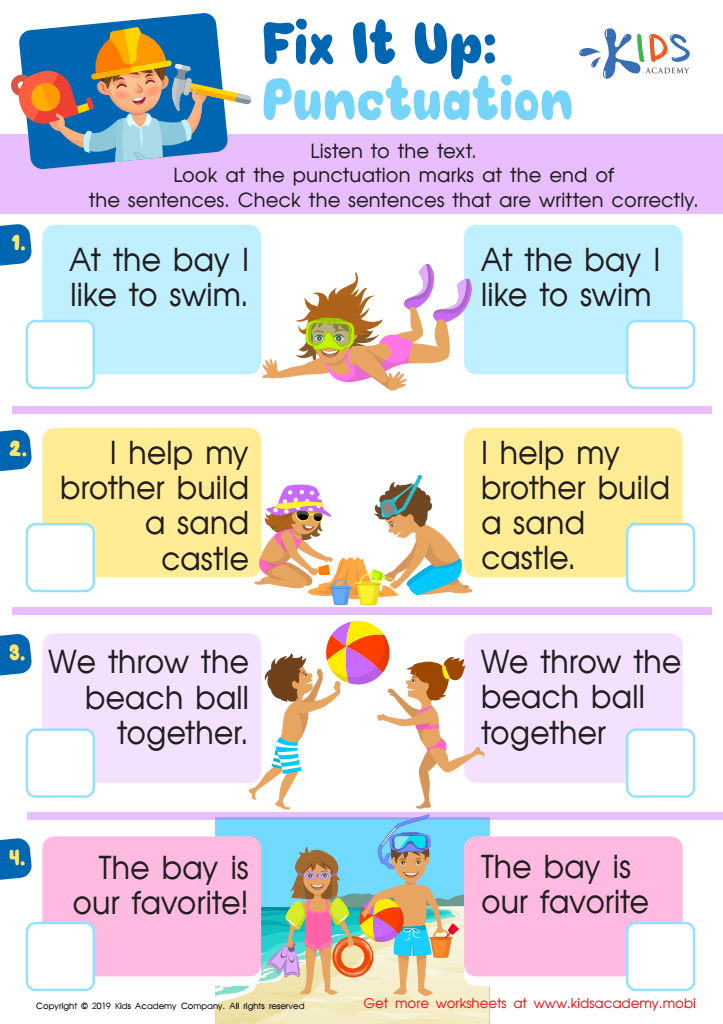Easy Punctuation Worksheets for Ages 3-5
4 filtered results
-
From - To
Discover our "Easy Punctuation Worksheets for Ages 3-5," designed to introduce young learners to the basics of punctuation in a fun and engaging way! Our worksheets feature colorful illustrations and simple activities that teach essential punctuation marks like periods, question marks, and exclamation points. Perfect for preschoolers and kindergartners, these easy-to-follow exercises help enhance writing skills while nurturing creativity. Each worksheet encourages children to recognize punctuation within sentences and understand its purpose. Download our free printable worksheets today and foster a love for writing in your little ones while setting a strong foundation for their future literacy skills!


Which Punctuation Mark Worksheet


Capitalization. Punctuation. Spelling: Assessment 2 Worksheet


Fix Spaces Worksheet


Fix Punctuation Worksheet
Easy Punctuation for Ages 3-5 is an important educational tool that helps lay the foundation for language development in young children. During these formative years, children are naturally curious and eager to learn, making it the perfect time to introduce basic punctuation concepts.
Teaching punctuation at an early age fosters reading comprehension and writing skills, enabling children to understand sentence structure and express their thoughts clearly. Easy Punctuation materials use engaging activities and fun visuals, making learning enjoyable and accessible for preschoolers. This accessibility encourages creativity, as children learn to form their own sentences and narratives.
Parents and teachers should care because early exposure to punctuation enriches a child’s communication skills, supporting their future academic growth. When children learn punctuation from a young age, they develop a strong literacy foundation, which can lead to improved performance in later years.
Moreover, it encourages positive relationships with language. Children who understand punctuation are more likely to enjoy storytelling, reading, and writing, fostering a love of learning that can last a lifetime. Investing time in teaching easy punctuation can have lasting benefits for a child's education and self-expression, ultimately contributing to their confidence and success in school.
 Assign to My Students
Assign to My Students




















